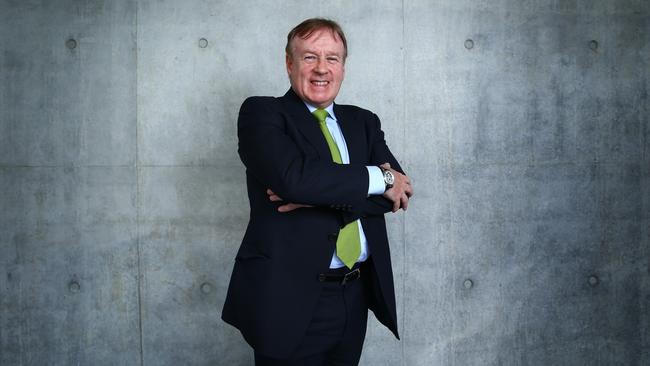Judo keeps its options open on ASX listing
Business bank Judo is keeping the door ajar to an ASX listing in 12 to 18 months, but isn’t committing to that route.

Business bank Judo is keeping the door ajar to an ASX listing in 12 to 18 months, but isn’t committing to that route given the strength of valuations in private capital markets.
“Our job is to make sure that (ASX listing) is an option for shareholders,” Judo’s joint chief executive Joseph Healy said at a briefing on Tuesday.
Judo, which received a banking licence in April, has raised $540m from investors in two funding rounds. Investors include Bain Capital Credit, investment group Tikehau Capital, Canadian pension fund manager OPTrust and Abu Dhabi Capital Group and SPF Investment Management.
Mr Healy said Judo’s lending so far amounted to $600m and it was on track to hit $1bn by the year’s end. In three years, the bank wants a loan book of $10bn or about 2 per cent market share. Judo expects to be cashflow positive early next year.
“We are happy with where we are at,” Mr Healy added, noting that 70 per cent of Judo’s lending was supported by deposits.
When quizzed on Judo’s “relationship model” and how it would keep costs under control, finance chief Chris Bayliss cited the absence of legacy systems, products and issues. One of Judo’s biggest problems in 2019 is finding small business bankers that can pass a credit exam and fit its culture.
Mr Healy said the exam pass rate was about 47 per cent, rendering a lot of candidates ineligible to work for Judo.
The business update came as Judo also released research, in conjunction with East & Partners, that showed the current funding gap for small and medium business stood at $91.5bn. That drew on E&P data in addition to the banking regulator’s statistics, and exceeded an estimate of $83.2bn.
Mr Healy said the funding shortfall showed that large banks were taking a property-heavy and “industrialised” approach to business loans which meant many in the $300bn sector were not being properly serviced.
National Australia Bank and Commonwealth Bank of Australia have looked to alleviate some of the issues by introducing faster unsecured business loans, but only at limited amounts.
Arowana’s head of risk management Johann Kenny also has strong views on the challenges facing small and medium businesses trying to secure debt capital. He called it a “chicken and egg type of problem” as businesses that had not reached $100m in revenue typically struggled to access growth funding.
Using analysis of constant interest cover ratios Mr Kenny puts the funding shortfall in the small business sector at $70bn.
Arowana is a business owner and asset management firm.
Mr Kenny said business owners were seeking out alternative options to bank funding as a result of challenges in the traditional lending space.
He cited data from factoring industry organisation FCI which showed invoice financiers funded about $87bn of assets for small and large businesses in 2018.
“Businesses of a smaller scale must rely on mortgaging real property security to attract lenders,” Mr Kenny added.



